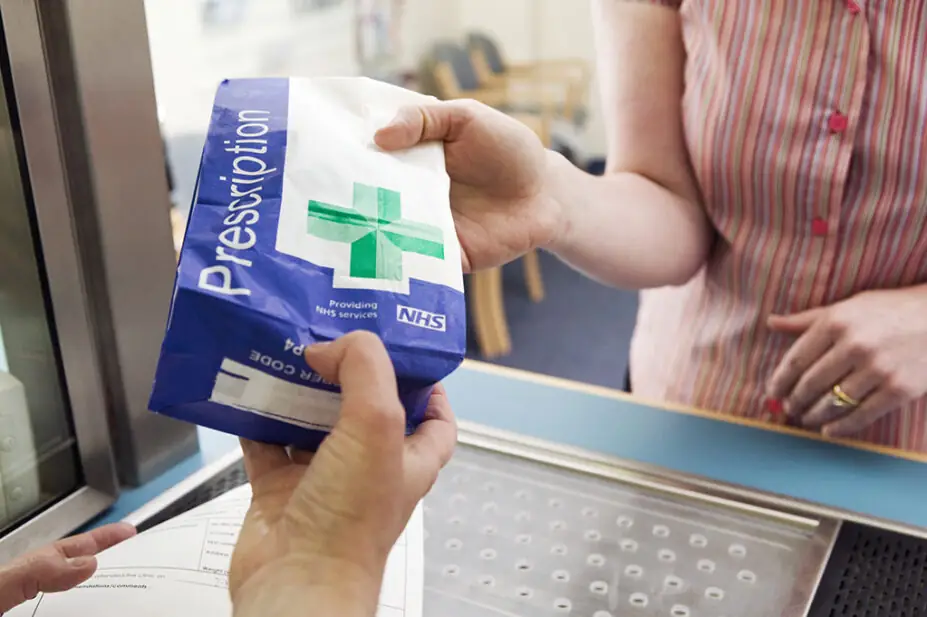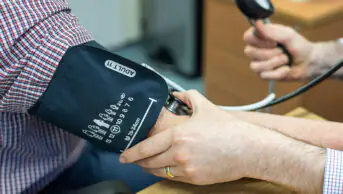
LEWIS HOUGHTON / SCIENCE PHOTO LIBRARY
Just under half (48%) of pharmacists who hold an independent prescribing (IP) qualification use it daily, responses to The Pharmaceutical Journal 2025 salary survey suggest.
Of the 581 pharmacists who responded to this question, 44% (n=253) said that they were a qualified independent prescriber.
This is a slight increase from 40% (n=518) of respondents to the 2024 survey.
Of those responding to the 2025 survey who held an IP qualification, 6% (n=14) said they had never prescribed, 48% (n=122) did so daily, 22% (n=56) used their qualification weekly, 8% (n=19) did so monthly, 2% (n=6) did so annually and 14% (n=35) did so less than annually.
The 2024 survey found that 10% (n=56) of prescribers had never used their qualification, 47% (n=241) used their qualification daily, 20% (n=102) did so weekly, 8% (n=41) did so monthly, 2% (n=8) did so annually and 13% (n=65) did so less than annually.
The latest results show daily prescribing was highest among GP and primary care network (PCN) pharmacists, with 77% (n=59) of prescribers in this setting reporting that they used their IP qualification daily.
Around half (48% [n=50]) of hospital pharmacist prescribers reported using their IP qualification daily, compared with three in ten (30%, [n=3]) community pharmacist respondents who held an IP qualification.
One in ten (10% [n=1]) community pharmacist respondents who held an IP qualification said they had never prescribed, compared with just 4% of prescribers working in hospitals (n=4), GP practices or PCNs (n=3).
The most common reason for not using their IP qualification was a lack of opportunity within their role — cited by 57% (n=58) of pharmacist prescribers across all settings.
Some 23% (n=23) of prescribers in all settings cited a lack of time, 19% (n=19) cited a lack of support from their employer and 18% (n=18) cited a lack of confidence. Around 17% (n=17) highlighted a lack of pharmacy staff, and 12% (n=12) cited a lack of funding.
Pharmacists in research and academia were most likely to cite a lack of opportunity as the reason they did not use their IP qualification (71% [n=5]), followed by those working in an integrated care board or health board (64% [n=9]) and those working in hospitals (62% [n=30]).
Half of community pharmacists (50% [n=3]) noted a lack of opportunity as a barrier to prescribing, as did 29% (n=4) of GP/PCN pharmacists.
Meanwhile, a lack of confidence was highest among community pharmacists (cited by 50% [n=3] of respondents from this setting), as was a lack of support from employers (33% [n=2]) and a lack of access to medical records (50% [n=3]).
Community pharmacists were also most likely to say a lack of time prevented them from prescribing, with half of community pharmacists (n=3) selecting this option, compared with 26% (n=5) of ICB/health board pharmacists, 25% (n=12) of hospital pharmacists and 21% (n=3) of GP/PCN pharmacists.
Prescribers working in hospitals were most likely to say a lack of appropriate pharmacy staff prevented them from prescribing, at 27% (n=13), compared with 17% (n=1) of community pharmacist respondents and 7% of GP/PCN (n=1) and ICB/health board pharmacists (n=1).
Daily prescribing was highest among respondents from Northern Ireland, at 67% (n=2) of prescribers, followed by 60% (n=31) of prescriber respondents from Scotland, 46% (n=84) of prescribers from England and 39% (n=5) of prescribers from Wales.
Claire Anderson, president of the Royal Pharmaceutical Society (RPS), commented: “Pharmacist prescribers feeling unable to use their skills as often as they like is a missed opportunity for patients and the NHS.
“Pharmacist prescribers improve access to medicines, reduce treatment delays and can help free up doctors’ time to focus on more complex cases. To make the most of these skills, prescribers must be fully embedded in multidisciplinary teams, with commissioned services in community pharmacy that bring care closer to home.
“Protected learning time is essential during training and in practice to allow prescribers to expand their skills and support future prescribers through designated supervisor roles.
“With all pharmacy graduates set to qualify as prescribers from 2026, we must ensure the right support, resources and opportunities are in place so every pharmacist prescriber can use their full potential for the benefit of patients.”
A spokesperson for the Department of Health and Social Care commented: “As set out in the ten-year health plan, community pharmacies will have a vital role in the neighbourhood health service, working closely with other primary care providers at neighbourhood level to deliver services.
“We expect services, including those that make use of pharmacist prescribing qualifications, to be commissioned both nationally — where that is most cost effective — and locally to meet specific local needs.”
Roz Gittins, chief pharmacy officer at the General Pharmaceutical Council, said the regulator expected that “more pharmacists will be able to use their qualification as services and opportunities continue to develop”, with all newly qualified pharmacists becoming prescribers from 2026.
A spokesperson for the Welsh government said that more than 200 pharmacists working in GP practices in Wales are regularly using prescribing, while health boards and NHS trusts were working to fully integrate pharmacist prescribers in multidisciplinary hospital teams.
“We are committed to working with the pharmacy profession to maximise the use of pharmacists’ skills, including prescribing,” they said.
“Nearly half of all pharmacists in Wales have trained as prescribers and, in 2022, Wales was the first UK country to introduce a nationally directed community pharmacist prescribing service under which all pharmacists who are trained to prescribe can treat a range of ailments.
“Every month, pharmacist prescribers working in around 40% of community pharmacies are providing care for tens of thousands of patients who would otherwise have had to visit their GP or other NHS service,” the spokesperson added.
They noted the three-year extension of the Health Education and Improvement Wales and the RPS learning programme, announced earlier in 2025, that supports pharmacists in Wales “to deliver the Pharmacy Independent Prescribing Service with confidence”.
A spokesperson for the Scottish government said: “We recognise that development of pharmacists early in their career is important to build confidence and competence. That’s why there is a variety of support available for new prescribers to use their qualification…. NES Pharmacy delivers an educational programme for pharmacists early in their career aligned to the five pillars of practice and outcomes of the RPS UK-wide curriculum, and offers the opportunity to learn in the workplace.”
They added that in Scotland, webinars are available through NHS Education for Scotland Pharmacy to support new and returning prescribers, while community pharmacist prescribers can access support through designated health board-based hubs and through TURAS Learn to support delivery of Pharmacy First Plus.
Gareth Jones, director of corporate affairs at the National Pharmacy Association (NPA), said: “Pharmacist IP has enormous potential to be applied across long-term conditions, acute interventions and prevention.
“The NHS ten-year plan is clear that IP can be an enabler for the treatment of many medical conditions and represents a golden opportunity to improve access to care through community pharmacies.
“It will be a big step forward when all pharmacists emerge from university with IP qualifications, but the benefits will only be maximised when fully funded, sustainable NHS services thoroughly deploy the skills.”
You may also be interested in

Prescribing pathfinders: what’s stopping community pharmacy delivering care for long-term conditions?

Almost two-thirds of pathfinder pilot site consultations have been for minor ailments
